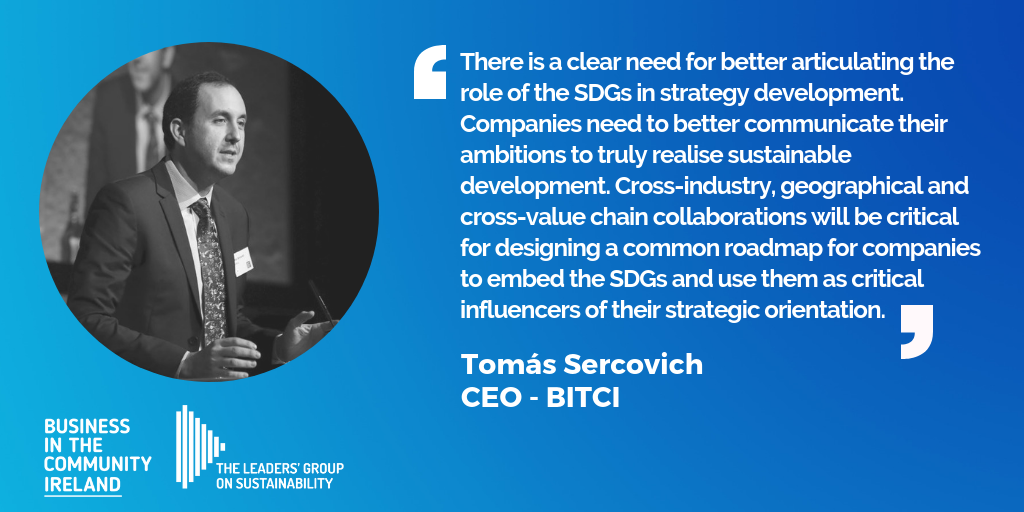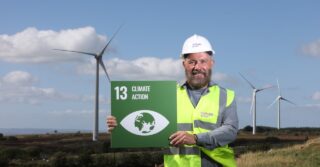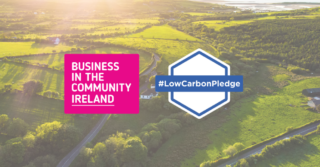Are the SDGs driving meaningful change?
2015 is a year we will all remember as the year of sustainability. In December of that year, 195 countries committed to the bold ambition of the COP21 Paris Agreement on limiting climate change and earlier in September, over 150 world leaders adopted the UN Sustainable Development Goals (SDGs). There were times of optimism about the future, of a shared agenda for humanity and of true partnership among people.
At times when a few tweets can make the world change dramatically, one can wonder whether the euphoria of sustainability of 2015 is diminishing and whether the SDGs have achieved something for the 2030 agenda of sustainable development. In particular, looking at business and their engagement with the SDG agenda it is good to see where we go next on its implementation. At the end of the day, 11 years are left to ensure that the high ambitions we all share become a reality.
The SDGs are a complex mechanism comprising 17 goals, 169 targets and 230 indicators; periodic progress reviews, including the annual High Level Political Forum that just took place in July, Voluntary National Reviews issued by signatory nations and endless forums, conferences, papers, websites and national processes mirroring the global structure.
Within this complex structure, the role of business was clearly defined as a fundamental agent of change. If moral arguments about the common mission of eliminating poverty, child mortality and inequality were not sufficient, a compelling business case was put together by the Business and Sustainable Development Commission[1], comprising top global CEOs. They identified a US$ 12 trillion of business opportunities in the sustainable development economy. Investment using ESG – environmental, social and governance criteria, therefore oriented towards SDG priorities, reached a record high, having traded US$ 41.6 billion last year[2].
If the business opportunity argument was not appealing, earlier this year a survey of 1150 people in Ireland exposed that in times of uncertainty about the future, 75% expect CEOs to take the lead on change rather than waiting for government to impose it[3]. Millennials and Gen Z people entering the workforce are amongst those who feel very strongly about the need to act and the need to change.
Faced with this scale of unparalleled challenge and a growing volatile world, what have the SDGs achieved to date?
- Vision: The SDGs have provided a universal and common language to define sustainable development and how it can be measured and evaluated. The SDGS as a global challenge demonstrate there are gaps in all countries and in all dimensions that need to be achieved.
- Sense of urgency: 2030 can feel like a long way to go in some aspects of sustainable development, but a clear timeline is forcing governments and civil society organisations to respond.
- Multi-dimensional appeal and collaboration: Whether it is the climate strike movement launched by Greta Thunberg or the results of the European elections in June and the “green wave”, there is a sense that we all must act together on these sustainability challenges. SDG 17 on partnerships for the goals is a change of model and collaborative platforms become the norm to promote joined up action and increased impact.
Towards new business models?
While the wide scope of the SDGs can appear to be disconnected from the reality of a business, the issues that the SDGs present are material issues that are challenging the role of business and its long term viability and economic success.
For many businesses, the SDGs provided a useful narrative to align their programmes and activities. Annual reports and websites for example clearly show the link between SDG 13 on climate action and measures taken by companies to reduce CO2 emissions or SDG 4 on quality education and SDG 5 on gender equality with programmes to promote STEM disciplines in girls in local communities. Fewer companies have taken an extra step and used the SDGs from an outside-in perspective to identify where they need to focus their programmes and initiatives and set targets[4].
Even fewer companies have used the SDGs and agenda 2030 to revisit their business models and investments. Unilever is a good example of this minority trend, where their brand portfolio is assessed not only on their financial performance but also on their contribution to society and the environment[5]. The acid test of the SDGs will be whether businesses are able to demonstrate how the SDGs are shaping the evolution of their business models, their decision-making and their product development.
There is a clear need for better articulating the role of the SDGs in strategy development. Companies need to better communicate their ambitions to truly realise sustainable development. Cross-industry, geographical and cross-value chain collaborations will be critical for designing a common roadmap for companies to embed the SDGs and use them as critical influencers of their strategic orientation.
In Business in the Community Ireland we are working with our member companies to help translate the SDG rhetoric into action through our Low Carbon Pledge[6]. Over 50 of Ireland’s largest companies have committed to measuring and reporting on their greenhouse gas emissions and have set targets for further reductions. Through our network companies are collaborating with each other and developing initiatives to increase their impact and ambition.
Sources:
[1] http://report.businesscommission.org/
[2] https://www.bloomberg.com/graphics/2019-green-finance/
[3] https://www.edelman.ie/insights/irish-people-want-businesses-and-ceos-drive-change
[4] https://www.pwc.com/gx/en/sustainability/SDG/sdg-reporting-2018.pdf
[5] https://www.unilever.com/news/press-releases/2018/unilevers-sustainable-living-plan-continues-to-fuel-growth.html
[6] https://www.bitc.ie/the-leaders-group/the-low-carbon-pledge/
Tags:







